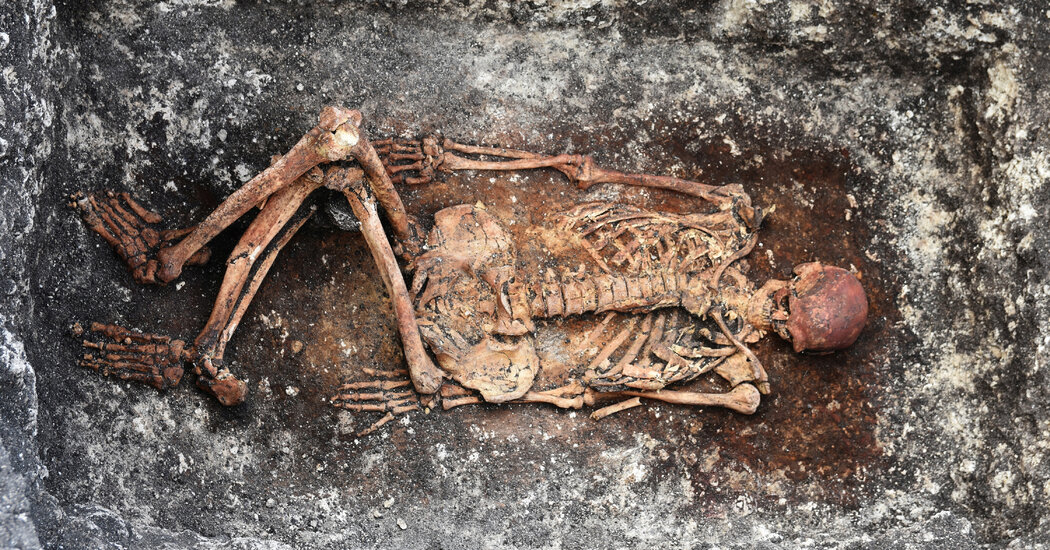
Multiple sclerosis, an autoimmune disease that affects 2.9 million people, presents a biological puzzle.
Many researchers suspect that the disease is triggered by a virus, known as Epstein-Barr, which causes the immune system to attack the nerves and can leave patients struggling to walk or talk. But the virus can’t be the whole story, since nearly everyone is infected with it at some point in life.
A new study found a possible solution to this paradox in the skeletal remains of a lost tribe of nomads who herded cattle across the steppes of western Asia 5,000 years ago. It turns out that the nomads carried genetic mutations that most likely protected them from pathogens carried by their animals, but that also made their immune systems more sensitive. These genes, the study suggests, made the nomads’ descendants prone to a runaway immune response.
The finding is part of a larger, unprecedented effort to understand how the evolutionary past has shaped the health of living people. Researchers are analyzing thousands of genomes of people who lived between Portugal and Siberia and between Norway and Iran roughly 3,000 to 11,000 years ago. They hope to trace the genetic roots of not only multiple sclerosis, but also diabetes, schizophrenia and many other modern illnesses.
